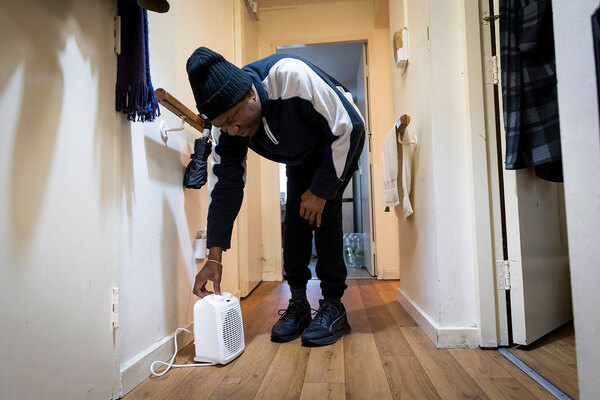You are viewing 1 of your 1 free articles
What about support for non-HRA councils?
Natalie Elphicke says lifting the borrowing cap could help deliver more homes but argues that money, skills and capacity support is needed for all councils if we want to turn additional money into additional homes.
This week’s announcement to lift the borrowing cap will give some councils greater financial freedom to build new homes.
That has been widely welcomed. However, the Housing Revenue Account (HRA) borrowing cap announcement applies to about half of local councils, those who own their own housing stock, and not all councils. So more needs to be done.
In our work we see councils that are actively involved in housing delivery for a host of reasons – some councils are securing new long-term homes for families currently housed in insecure short-term private renting or for people who are homeless.
“Some councils that transferred their stock have got back into direct delivery of housing because they feel let down by the lack of delivery in their communities by others.”
Others want to see higher-quality affordable housing for students, young workers or older people to rent or own.
Some councils that transferred their stock have got back into direct delivery of housing because they feel let down by the lack of delivery in their communities by others.
Our research has also highlighted the ‘not-spots’ – areas of the country where no new affordable homes are being built by housing associations. Too often that happens in rural or lower-value markets.
Councils in these areas need financial, skills and capacity support to secure the affordable homes they require for their communities.
The best councils, both stock holding and non-stock holding, have developed skills and capacity to make the most of their role as housing delivery enablers.
They build and shape their communities as well as planning and providing homes for the future. The best work in successful partnerships with the private sector – bidding and securing private and public money and contracts to deliver change.
At the Housing and Finance Institute we work closely with the very best councils that understand what they want to achieve, the powers and resources they have to deliver, and which other organisations and businesses can help them to deliver more and better homes faster.
From our work on the ground there are many outstanding HRA councils. These include Ashford, Bournemouth, Luton, Stoke-on-Trent, Tendring and Wokingham.
There are also many excellent non-HRA councils, such as Broadland, South Norfolk and Chelmsford.
Whether HRA or non-HRA, the very best councils share the same hallmarks for successful housing delivery.
These include resolute political leadership, strong officer teams and the effective harnessing of public and private finance.
All such councils would benefit from even greater powers, freedoms and flexibilities.
“Whether HRA or non-HRA, the very best councils share the same hallmarks for successful housing delivery.”
These could include broader powers for market renewal and retaining housing receipts locally. In addition they would greatly benefit from upfront funding for infrastructure, site prep and start-on-site costs in order to accelerate the delivery of homes on the ground.
This week’s announcement has provided an opportunity to look again at the role of councils in housing delivery – an opportunity to consider how the best are performing and what they each may need to deliver more homes faster.
It is time for a stronger and more positive relationship that understands more fully that energetic and well-resourced local councils are the most effective housing delivery enablers – these are the councils that will deliver the very best for our housing futures.
Natalie Elphicke, chief executive, Housing and Finance Institute
More on the HRA cap announcement
Government now appears to recognise the role of councils - but it needs to scrap Right to Buy Terrie Alafat finds much to like in Theresa May’s council borrowing cap announcement, but wants the government to go much further
New council house borrowing will be under prudential rules, says Porter More details of how new council borrowing rules are likely to work, from the chair of the Local Government Association
More details to come in Budget on borrowing cap The government has been unable to provide any further detail on its plans to scrap the borrowing cap, saying more information will follow in the Budget later this month.
The HRA borrowing cap explained A useful explainer of the context to the council borrowing cap along with a timeline of the story so far
Councils say scrapping debt cap will boost house building More reaction from local authorities
Scrapping HRA cap ‘could see 100,000 homes built’ Details of estimates from Savills on the potential impact of the government’s decision
May’s HRA announcement deserves its warm welcome – but the Budget will be the real test Blogger Jules Birch picks over the announcement
Sector heralds lifting of the borrowing cap as excellent news Reaction to the HRA cap axe from across the social housing sector
Government expects annual £1bn of council borrowing once debt cap is scrapped The first indication of the amount of borrowing ministers are expecting once the cap is no more
Theresa May announces plan to scrap council borrowing cap All the details of Theresa May’s surprise announcement
May's Conservative Party conference speech: the housing bits in full
Below is the text of the housing section of Theresa May's party conference speech:
"Last year I made it my personal mission to fix another broken market: housing.
We cannot make the case for capitalism if ordinary working people have no chance of owning capital.
To put the dream of home ownership back within their reach, we scrapped stamp duty for most first-time buyers – and over 120,000 households have already benefited.
We’ve helped half a million people onto the housing ladder through other schemes like Help to Buy.
And this week we have announced that we will charge a higher rate of stamp duty on those buying homes who do not live and pay taxes in the UK, to help level the playing field for British buyers.
The money raised will go towards tackling the scourge of rough sleeping.
But the truth is that while these measures will help in the short term, we will only fix this broken market by building more homes.
And that is what we are doing.
More new homes were added to our stock last year than in all but one of the last 30 years.
But we need to do better still.
The last time Britain was building enough homes – half a century ago – local councils made a big contribution.
We’ve opened-up the £9 billion Affordable Housing Programme to councils, to get them building again.
And at last year’s conference I announced an additional £2 billion for affordable housing.
But something is still holding many of them back.
There is a government cap on how much they can borrow against their Housing Revenue Account assets to fund new developments.
Solving the housing crisis is the biggest domestic policy challenge of our generation.
It doesn’t make sense to stop councils from playing their part in solving it.
So today I can announce that we are scrapping that cap.
We will help you get on the housing ladder.
And we will build the homes this country needs."
Speech given to the Conservative Party conference on 3 October, 2018.














